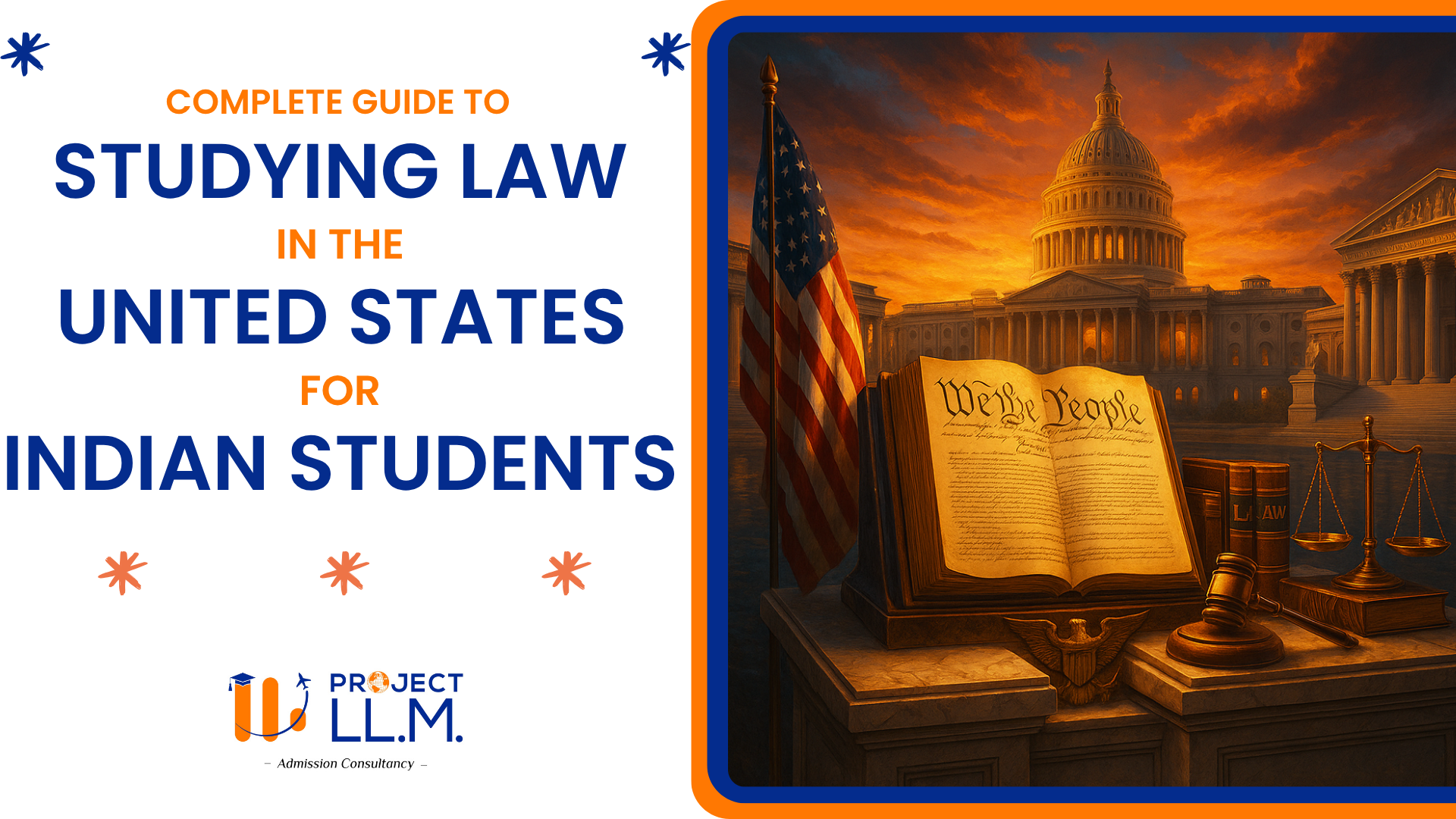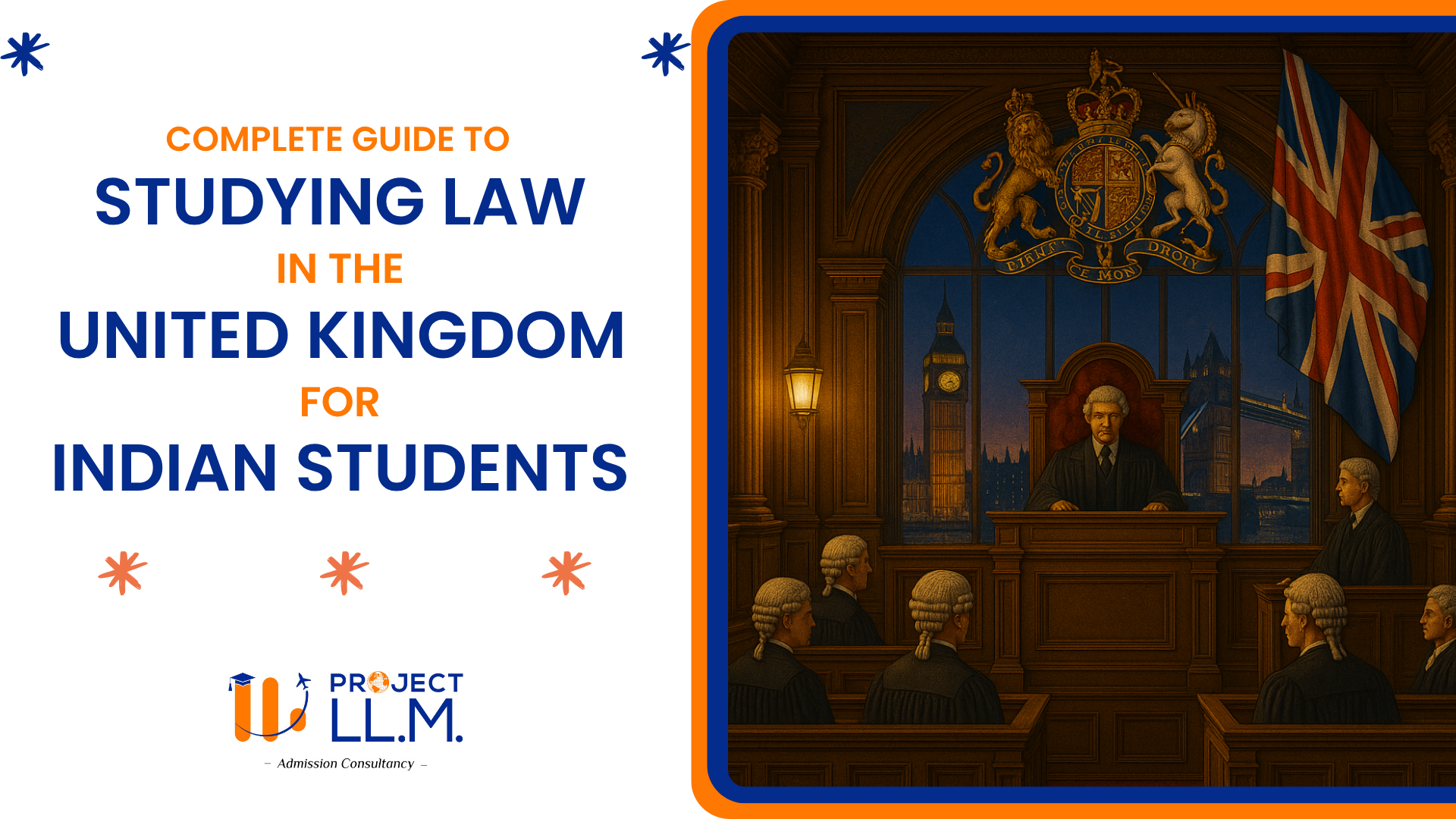Pursuing a legal career in the United States at an Ivy League is an exciting opportunity for many Indian students. Unlike India, where law can be pursued directly after school through a 5-year integrated program, the U.S. follows a graduate-level model for legal education. This article provides a comprehensive overview of the Juris Doctor (JD) pathway, the most common route to becoming a lawyer in the U.S., and outlines everything an Indian student needs to know before embarking on this journey. For a general understanding of the US legal education system please read our article titled Study Law in USA: A Complete Guide for International Students.
Legal Education Structure and Recognition of Indian Degrees for Juris Doctor (JD) Studies
In the United States, there is no undergraduate law degree. Students must first earn a bachelor’s degree in any field before enrolling in a 3-year JD program at an accredited law school.
The JD is recognized as a professional law degree and is considered broadly equivalent to the Indian LL.B. degree. For Indian students, most U.S. law schools accept a 3-year undergraduate degree (in any discipline) as meeting the eligibility requirement for JD admission. Credential evaluation is usually performed by agencies like:
- World Education Services (WES)
- Law School Admission Council (LSAC)’s American Association of Collegiate Registrars and Admissions Officers (AACRAO)
This process ensures that international degrees are evaluated fairly and equitably.
Juris Doctor (JD) Admission Requirements for Indian Students
To apply for a JD program in the U.S., Indian students need to prepare the following:
1. Résumé / CV
A one-to-two-page summary of your academic record, internships, achievements, and leadership experiences.
2. Academic Transcripts
Strong undergraduate academic performance is critical. All transcripts must be submitted for evaluation.
3. Standardized Tests
- LSAT (Law School Admission Test) is the primary test accepted by most U.S. law schools. Offered several times a year, taking the LSAT in July, August, or September is advisable for early decision applications.
- GRE General Test: Some law schools now accept the GRE as an alternative. Always check with your target institutions.
4. English Proficiency
- TOEFL or IELTS scores are generally required unless the applicant has studied in English throughout their prior education. Waivers may be granted in some cases.
5. Personal Statement
A compelling essay that outlines your motivation to study law, career goals, and life journey.
6. Letters of Recommendation
Typically 2 to 3 letters from professors or professional supervisors.
7. Extracurriculars and Leadership
Active involvement in student activities, volunteerism, or writing significantly strengthens your application.
8. Application Submission
Applications are submitted either directly through each law school’s portal or through LSAC’s Credential Assembly Service (CAS), which compiles your transcripts, recommendations, and LSAT score into a single report.
Juris Doctor (JD) Application Timelines for U.S. Law Schools
| Applications Open | Mid-August or Early September |
| Early Decision Deadlines | Mid-November or Early December |
| Regular Decision Deadlines | January to March |
It is highly recommended to apply early for better chances of admission and scholarships.
Practicing Law in the U.S. After Completing a Juris Doctor (JD)
After completing the JD, graduates must pass the bar examination in the state where they intend to practice law. The bar exam is state-specific — passing the bar in one state does not automatically qualify a candidate to practice in another (although some states have reciprocity agreements).
Unlike LL.M. graduates, JD holders are eligible to appear for the bar exam in almost all U.S. states.
Post-Study Work Opportunities After a Juris Doctor (JD) in the U.S.
JD graduates are eligible for 12 months of Optional Practical Training (OPT). During this period, if they secure employment, their law firm may choose to sponsor them for an H-1B work visa.
Estimated Cost of Attendance a Juris Doctor (JD) Program for Indian Students
| Annual Tuition Fee (Yale JD Program 2024–25) | 76,369 USD |
| Estimated Annual Living Costs | 23,631 USD |
| Total Annual Costs | 100,000 USD |
| Costs for Three Years | 300,000 USD |
| Converted to Rupees at 1 USD = 86 INR | 2,58,00,000 INR |
Note: These are average figures for top law schools like Yale and do not include undergraduate study costs. Scholarships and financial aid can significantly reduce this burden.
Possible Study Pathways for Indian Students
Indian students can choose among the following academic routes:
- 3-Year Graduation in India + 3-Year JD in the U.S.
- 3-Year Graduation in the U.S. + 3-Year JD in the U.S.
- 5-Year Integrated LL.B. in India + 1-Year LL.M. in the U.S.
Not sure whether this jurisdiction is the best choice for you or not? Read our article on Key Factors to Consider When Choosing a Country for Studying Law Abroad for better decision making.
FAQs – Juris Doctor (JD) Pathway for Indian Students
Is a JD degree equivalent to an LL.B. in India?
Yes, the JD is a professional law degree broadly equivalent to the LL.B. It qualifies graduates to sit for the bar exam in the U.S. and is increasingly recognized globally.
Can I apply for a JD with a 3-year Indian bachelor’s degree?
Most U.S. law schools accept a 3-year Indian degree if it is from a recognized institution. Credential evaluation by WES or AACRAO is mandatory.
Is the LSAT mandatory for all law schools?
While most law schools require the LSAT, some also accept the GRE. Check the specific requirements of your chosen schools.
How competitive is JD admission for international students?
Very competitive. Top law schools admit a limited number of international students. A strong academic record, high LSAT score, and compelling personal statement are essential.
Can I practice law in India after a JD from the U.S.?
Yes, but you must meet the Bar Council of India’s eligibility requirements. Recognition of foreign law degrees may require further validation or completion of additional qualifications.
Are scholarships available for JD programs?
Yes, many law schools offer merit- and need-based scholarships. However, they are highly competitive, and full scholarships are rare.
What are the career prospects after completing a JD in the U.S.?
JD graduates can pursue legal practice (after passing the bar), work in corporate law, policy, academia, or consulting. U.S. work visa sponsorship is crucial for continued employment.



